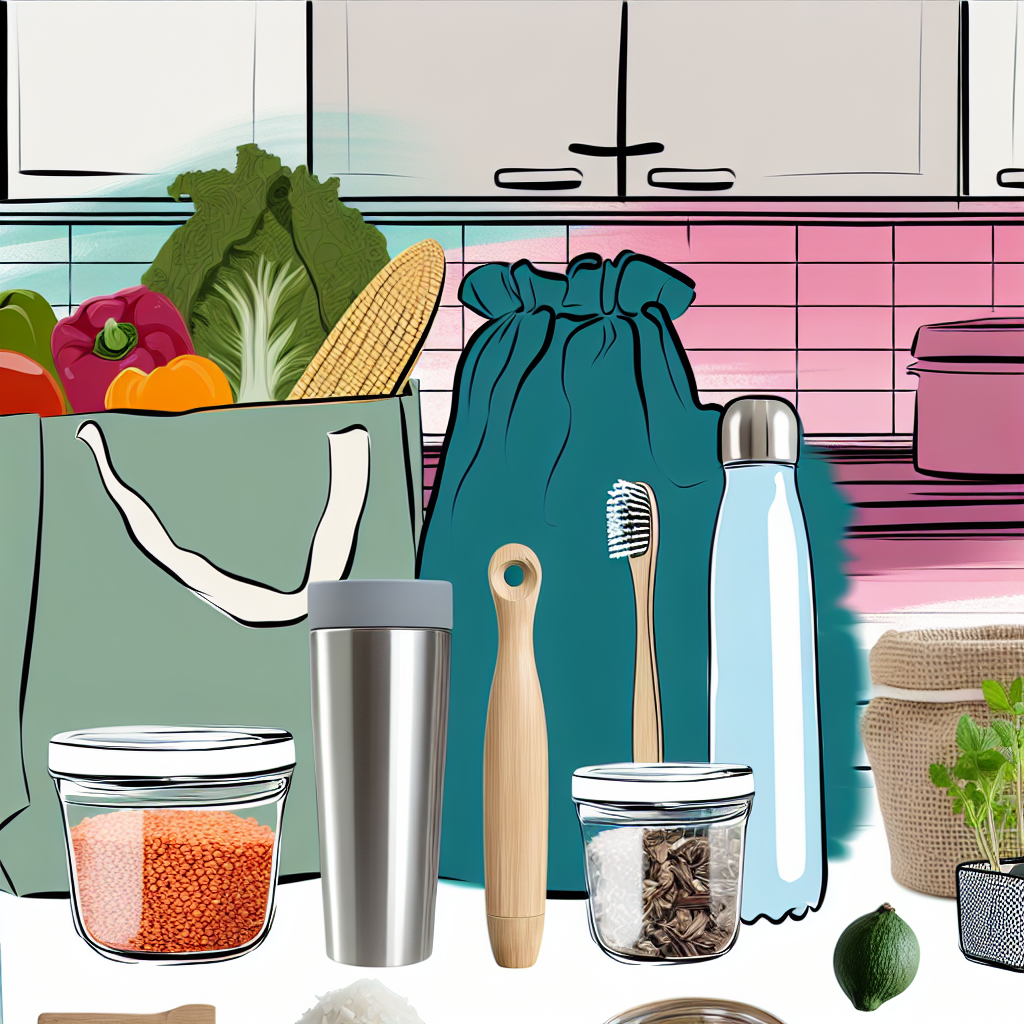10 Budget-Friendly Tips for Living a Zero-Waste Lifestyle
Introduction
Welcome to the Frugal Zeitgeist, where saving money meets saving the planet! Today, let’s learn about zero-waste living—it’s more than just a trend, it’s a lifestyle change. Making sustainable choices doesn’t have to be expensive. In fact, it can be super cheap! We’ll show you ten simple tips to help you live a zero-waste lifestyle without spending too much. Get ready to help the Earth and keep your wallet happy at the same time!
Understanding Zero-Waste
Zero-waste living is like giving Mother Earth a big hug. It’s about creating less trash by refusing what you don’t need, reducing what you use, reusing things over and over, recycling, and composting. These are known as the 5 R’s. Some people think that living zero-waste is expensive, but that’s not true. You also don’t need to give up modern conveniences or live in the woods (unless you want to!).
Tip 1: Conduct a Waste Audit
Think of this as your waste confession. A waste audit means taking a peek into your trash to see what you’re throwing away. Collect your garbage for a week and sort through it. Count how many single-use items you find. Do you get too many takeout containers or too much junk mail? Knowing your waste habits is the first step to cutting them down.
Tip 2: Reduce Single-Use Products
Single-use products, like plastic water bottles and disposable coffee cups, have got to go! Swap them for reusable items like stainless steel water bottles, travel mugs, and cloth bags. This will save you money in the long run, and you’ll look like the coolest eco-warrior at the store. “Oh, this cloth bag? It used to be a curtain!”
Tip 3: DIY Cleaning Supplies
Homemade cleaning products are like magic potions—they’re cheaper, greener, and just as good! Stock up on things like vinegar, baking soda, lemon juice, and essential oils. Mix them to make all-purpose sprays and scrubbing pastes. Cleaning can be as fun as a science experiment!
Tip 4: Embrace Second-Hand and Thrift Shopping
Let’s make thrift shopping a fun sport. Buying second-hand is a great way to save money and the planet. Look for clothes, furniture, and kitchen items that need new homes. You’ll find great deals and feel like a treasure hunter!
Tip 5: Composting for Everyone
Composting is nature’s way of turning food scraps into garden goodies. Whether you have a big yard or a small apartment, there’s a composting way for you. Try tumblers, bins, or even worm composting. Start with kitchen scraps and coffee grounds, and soon you’ll have rich compost for plants. It’s like magic beans!
Tip 6: Meal Planning and Food Storage
Let’s plan meals like we’re running a top restaurant. Meal planning cuts food waste and saves money. Check your fridge and plan a week of meals with what you have. Use leftovers creatively, store food smartly, and keep herbs fresh in damp paper towels. Delicious food and money saved!
Tip 7: Upcycle and Repair
Become a master of upcycling and repair. Upcycling means turning old things into something new—like a ladder into a bookshelf. Repairing means fixing clothes or gadgets instead of throwing them away. It’s fun and helps save money.
Tip 8: Minimalist Wardrobe
A minimalist wardrobe is like fashion with less clutter. Create a capsule wardrobe with a few versatile, timeless pieces instead of lots of trendy clothes. By focusing on quality, you’ll always have something to wear without too much stuff.
Tip 9: Community and Bulk Buying
Let’s make grocery shopping a team sport! Buying in bulk reduces packaging waste and saves money. Find local zero-waste or bulk stores, and join community buying groups. Bulk buying is not just economical; it’s fun and can be done with friends.
Tip 10: Educate and Involve Family and Friends
Share the zero-waste magic with your family and friends! Tell them about your journey, share your successes, and host zero-waste challenges. Getting your community involved can lead to bigger changes. Bond over eco-friendly chats!
Conclusion
There you go—your 10 budget-friendly tips for zero-waste living! Start small, make changes gradually, and soon you’ll be an eco-friendly expert. Remember, the journey to zero-waste is fun and rewarding. Live sustainably on a budget and let us know how it goes. Keep saving those pennies and the planet, one fun tip at a time.
Resources and Further Reading
For more adventures in zero-waste living, check out these resources:
- Books: “Zero Waste Home” by Bea Johnson, “The Story of Stuff” by Annie Leonard
- Websites: Trash is for Tossers, The Zero Waste Chef
- Documentaries: “Minimalism” on Netflix, “The True Cost”
- Online communities: Zero Waste Bloggers Network and Zero Waste Heroes on Facebook
- Apps: Olio, Karma, Too Good To Go
Together, we can create a wonderful, zero-waste world!
